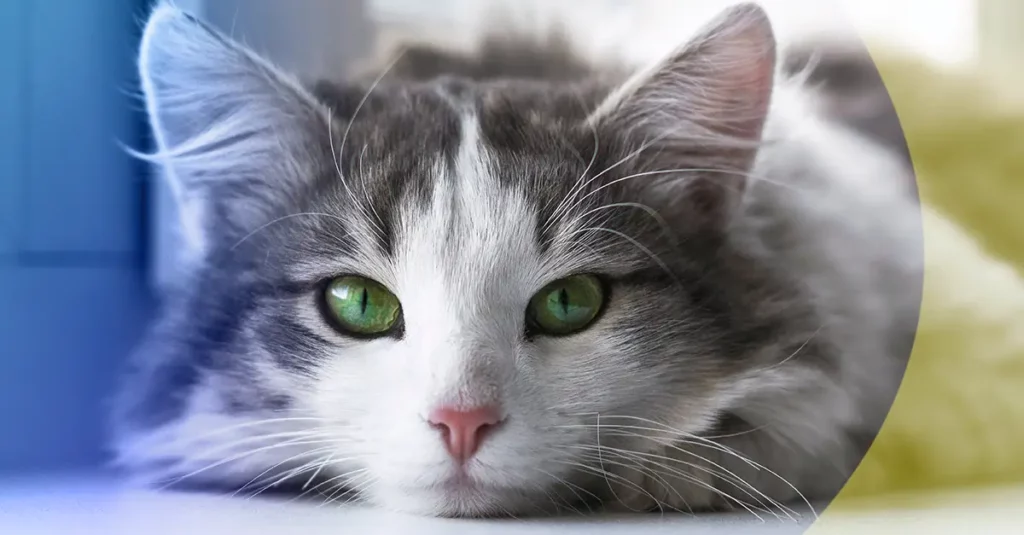Felines are notorious for their independent personalities, so you may wonder, “Can a cat be my emotional support animal?” The answer is a resounding, Yes! Cats enjoy their personal space and have a free-spirited personality, but for many people, these traits make for an ideal source of emotional support.
What is an Emotional Support Animal?
Emotional support animals, also known as ESA, are more than pets. These animals positively influence an individual’s emotional or mental health disability. This impact is so powerful that it can help alleviate the symptoms affecting a person’s ability to manage their daily lives. An emotional support animal helps reduce the symptoms of mental or emotional disabilities and improve their owner’s mental well-being.
The Impact of Mental Illness
According to the National Alliance on Mental Illness (NAMI):
- Roughly 20% of adults in the U.S. face mental illness each year
- Around 1 child out of every 6 children aged 6-17 experiences a mental health issue each year
- About 21 million people in the U.S. live with Major Depressive each year
- Each year, approximately 48 million people struggle with anxiety, the most common mental health condition.
The symptoms of mental health disabilities can impact a person’s life in several ways:
- People with mental disabilities, like depression, are at a higher risk for developing chronic diseases like heart disease and diabetes.
- Adults diagnosed with mental illness are also at a higher risk for substance use disorders.
- Mental illness can lead to unemployment, increased school dropout rates in high schoolers, and unstable family environments.
An emotional support animal reduces all the risks of the negative effects of mental disorders. Research indicates that animals are beneficial at creating connections and providing a stabilizing source of support for people with mental or emotional disorders. And cats, in particular, make surprisingly low-maintenance ESAs that come with high rewards.
ESA and the Fair Housing Act
Individuals with mental or emotional disorders may benefit from an ESA. Because an emotional support animal can positively impact a person’s mental disability, ESAs are protected under federal law. The Fair Housing Act considers ESA as a reasonable accommodation for a disability. Therefore, people with a mental or emotional disorder may live with their ESA — even in housing where no pets are allowed.
The U.S. Department of Housing and Urban Development (HUD) is the enforcing entity for the FHA and manages complaints regarding discrimination against people with disabilities. Furthermore, according to the ESA, fees typically reserved for pets do not apply to ESA. Why? Because a licensed healthcare professional’s ESA letter designates an animal as an emotional support animal, not just a pet.

What is an ESA Letter?
An ESA letter is a document from a licensed healthcare professional (LHCP) attesting that the ESA owner benefits from the presence of the animal to improve the symptoms of their mental health condition.
A valid ESA letter contains the following:
- The licensed healthcare professional’s license type (this may be a psychologist, psychiatrist, advanced practice nurse, etc.).
- The state and date in which the practitioner’s active license was issued.
- The LHCP worker’s letterhead and signature.
- The date the letter was issued.
- A statement attesting to the need for the ESA.
An ESA letter is of utmost importance — for an emotional support animal to fall under the FHA laws, the owner must have a current and legitimate ESA letter.
Want to know if you qualify for an ESA? We can connect you with a licensed therapist online for your ESA letter consultation.
Why Cats Make Excellent Emotional Support Animals
Cats are not dogs — they are notoriously difficult to train and have a mind of their own. That said, cats are also affectionate, protective, and outrageously entertaining to watch, as evidenced by many cat videos on the internet. A loving or funny feline can diminish an individual’s feeling of sadness or anxiety simply by chasing a stuffed mouse or fighting with themselves in the mirror. Inherently comical, cats like to get into mischief and find some fun. These are traits that can lift the spirits of someone suffering from mental illness.
1. Cats Are Picky About Who They Love
There’s also something about earning a cat’s love and affection, especially when that same cat remains aloof with strangers and other family members. A cat’s love and warmth is often directed toward only a few humans. For individuals who seek recognition and are diagnosed with anxiety, the reassurance a feline provides can be life-changing.
2. Cats Offer Comic Relief
The contrast of a graceful cat acting clumsily is perfect for daily comic relief. Cats are so hilarious that studies have been conducted on their effects on mental health. A study found that simply watching funny cat videos can improve mental health and boost energy. Being in the presence of a cat in the home can help to mitigate the debilitating symptoms of a mental health disorder. In addition, cats are excellent at recognizing human emotions and responding accordingly.
3. Cats are Low Maintenance
A person with significant mental health symptoms may prefer a low-maintenance ESA (that’s not a fish). Cats fit the bill. Although they provide the size and warmth of a smaller dog, they don’t require upkeep. With felines, there’s no need for daily walks, regular grooming, or constant attention. Food, water, a litter box, intermittent attention, and routine veterinary care are all that most cats require. Furthermore, cat food and veterinary care are typically less costly than those for dogs.
4. Cats are Soft and Cuddly
Felines make ideal ESAs because they’re soft, cuddly, and affectionate, contrary to popular belief. Cats enjoy sleeping in warmth, and a warm lap is the perfect resting spot. Petting their meticulously clean and soft fur helps reduce anxiety and irritability, mitigating symptoms of mental disorders. Tender and emotional with their owners, many cats are not fond of strangers. Studies show that cats adopted as kittens are especially beneficial for children with autistic disorders, resulting in affectionate interactions.
How to Get an Emotional Support Cat
Before you get an ESA cat, be sure you can accommodate and take care of a cat. ESA are animals after all, that need care, time, and a safe place they can call their home. While an ESA cat can give you newfound joy in life, it is important to never forget that they also depend on you to live a happy and healthy life.
If you already own a cat that does great services for you, you may talk to your health professional in regards to turning your pet cat into an official emotional support cat. If you don’t have a cat, you can either talk to an LHCP first and inquire about an ESA letter, or find your perfect feline companion first and apply for an ESA letter after. You can try your luck to adopt a cat in any reputable animal shelter in your area, or find a breeder that may have purebred kittens for sale.
ESA cats require no training, but they do need an ESA letter.
ESALetters.com
How to Register a Cat as An Emotional Support Animal
Although registration sites are available to register an animal as an ESA, registration isn’t necessary to fall under FHA laws. What is needed is a legitimate ESA letter. If you’re interested in owning an ESA cat, consult with your healthcare professional regarding the possible benefits of owning an ESA. You can also utilize convenient online telehealth services to inquire about obtaining an ESA letter. Speak to a licensed healthcare provider to see if an ESA cat can work for you!




